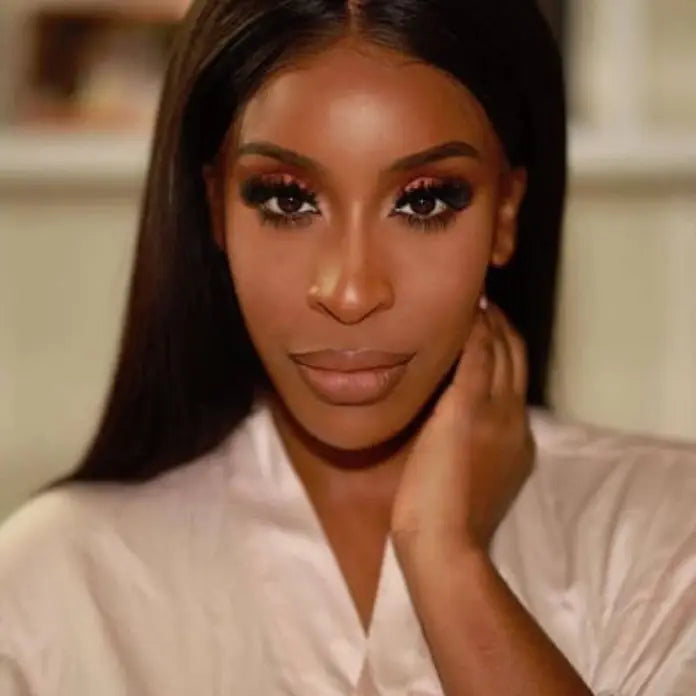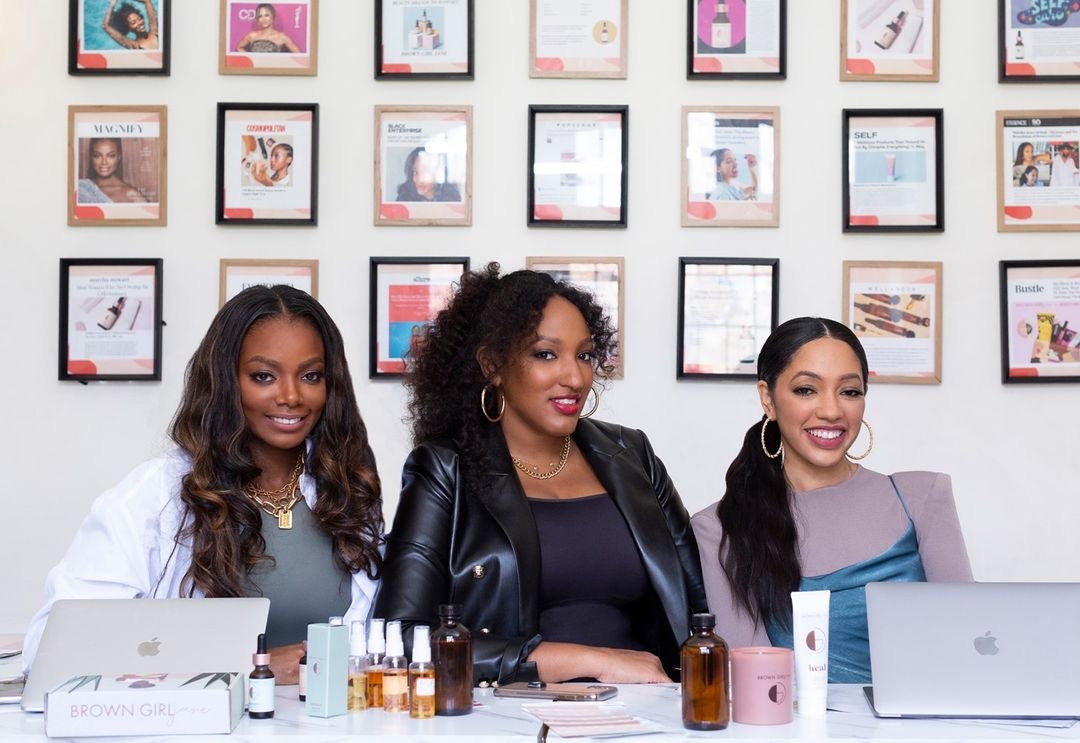THE BEAUTY INDUSTRY'S DIVERSITY PROBLEM: ARE YOU APART OF IT?

Where are all the Black women at the beauty counter?
The continued misrepresentation of Black women in the beauty industry and how we can change it.
For centuries, the beauty of a Black woman has been a source for debate: What color of Black skin is the "right" one? What works best with Black skin? What color lipstick is too bright or too dull for darker-skinned women?
Historically, it’s no secret that Black women have been excluded from the beauty industry and were taught to assimilate to the White majority beauty standard. The 1960s saw the emergence of the “Black is Beautiful” movement which rejected this ideal and encouraged Black women to embrace their natural beauty, coinciding with the Civil Rights movement. Melissa Baird, the author of the comprehensive report Making Black More Beautiful, emphasizes the impact this movement had on large corporations from its creation until the mid-1990s.
Even today, when it comes to Blackness in the beauty industry, what is lacking is much more than simply finding the correct color foundation or lipstick; it is the inherent presence of Black women of all backgrounds that are missing. Because the White majority overshadows their voices, it’s common to hear that Black women find it difficult to relate to many trending beauty brands on the available market. The lack of representation of Melanated skin in everything from advertisements and marketing strategies to shades of the foundation can only be construed as intentional, but for what purpose? Ultimately, what good does it do to exclude an entire population of people from a business besides creating more division in an already dichotomous world?
Despite obvious challenges, the Black female presence has been working its way into larger chain stores like Sephora and Ulta in recent years through independently owned companies and businesses, which has undoubtedly increased awareness about the necessity of inclusion. Following in the footsteps of historical Black beauty legends like Madame C.J. Walker, celebrities such as Rihanna have created revolutionary brands like Fenty, which completely changed the game for providing Black women with accessible and affordable yet high-end products that work with their skin. By 2019, the Black women’s beauty industry had become a billion-dollar industry. While this shows that the industry has come quite a long way from its tumultuous and flat-out racist beginnings, there is still quite a way to go — but how can that be done?
Rather than attempting to change the lackadaisical approach by many companies, the department store industry has crumbled under them. Big brands are taking the “easy” path and creating what they think is best for Black women rather than learning from women’s lived experiences who have searched their entire lives for products that make them feel confident and beautiful. Overshadowing the Black experience has led to a watered-down version of diversity that’s only contributed to the misrepresentation. In essence, what types of products do Black women actually want to see in stores?
To do this, the beauty industry must be willing to have difficult conversations about the archaic and inefficient diversity, inclusion, and equity (DEI) and marketing strategies they have adopted. Between tokenism, colorism, and long-standing systemic racism, large companies and brands have become complacent in misrepresenting all types of Black women. Until this is acknowledged, not much can be done to move forward with change.
Once this is done, however, brands can begin to build relationships with Black business owners and influencers to understand Black culture and community on more than a surface level. Learning about the Black experience in the beauty industry can help inform those who have not previously had any meaningful conversation around it. By having these conversations, organic education and growth can begin.
If you are a White professional in the beauty industry or someone interested in learning more about how to advocate for reforming the beauty industry, here are a few more ideas to help end misrepresentation:
- Include Black women on consumer panels
- Actively seek out reading materials about the history of how Black women have been presented in and treated by the beauty industry
- Talk to Black women about their experiences with beauty products
- Write to your favorite companies and encourage them to change their presentation of diversity in advertising
- Support Black-owned beauty businesses by purchasing their products and sharing them on social media
At the end of the day, all anyone wants is to be heard. Empowering Black women to have their voice heard within the beauty industry can single-handedly change society’s perception and big brands. All it takes is having meaningful conversations and investing in Black communities.
By: Morgan Bailee Boggess




Comments